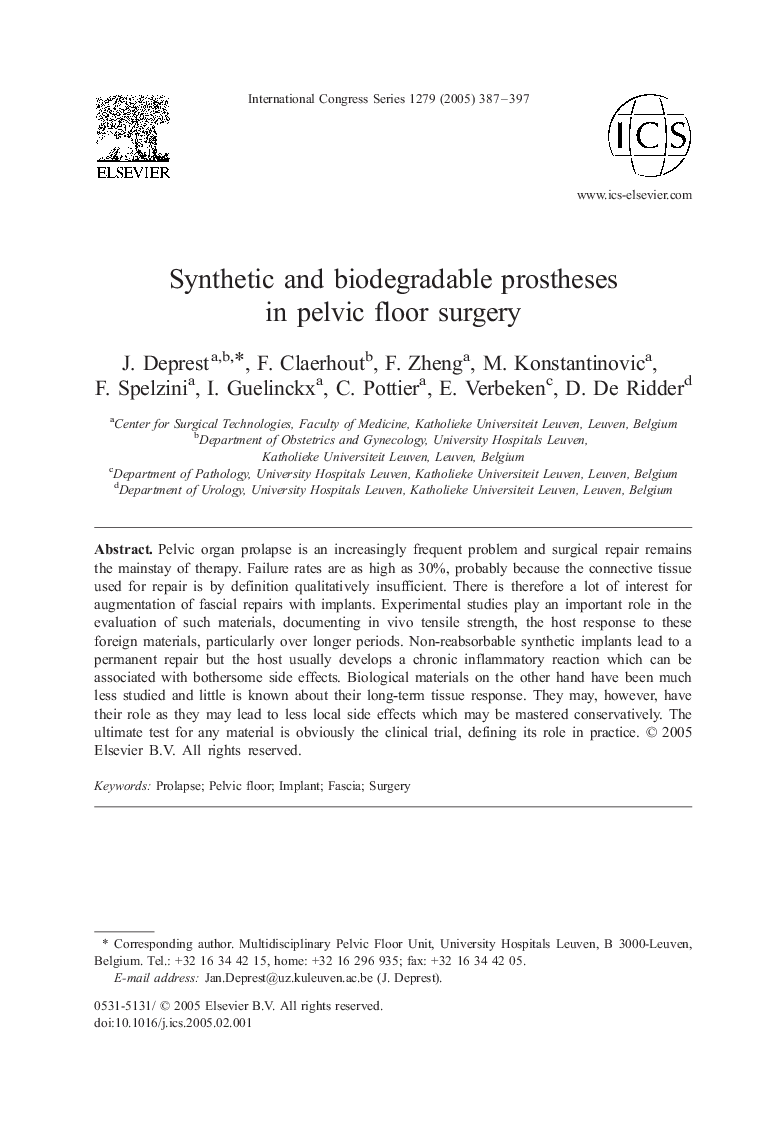| Article ID | Journal | Published Year | Pages | File Type |
|---|---|---|---|---|
| 9022023 | International Congress Series | 2005 | 11 Pages |
Abstract
Pelvic organ prolapse is an increasingly frequent problem and surgical repair remains the mainstay of therapy. Failure rates are as high as 30%, probably because the connective tissue used for repair is by definition qualitatively insufficient. There is therefore a lot of interest for augmentation of fascial repairs with implants. Experimental studies play an important role in the evaluation of such materials, documenting in vivo tensile strength, the host response to these foreign materials, particularly over longer periods. Non-reabsorbable synthetic implants lead to a permanent repair but the host usually develops a chronic inflammatory reaction which can be associated with bothersome side effects. Biological materials on the other hand have been much less studied and little is known about their long-term tissue response. They may, however, have their role as they may lead to less local side effects which may be mastered conservatively. The ultimate test for any material is obviously the clinical trial, defining its role in practice.
Related Topics
Life Sciences
Biochemistry, Genetics and Molecular Biology
Molecular Biology
Authors
J. Deprest, F. Claerhout, F. Zheng, M. Konstantinovic, F. Spelzini, I. Guelinckx, C. Pottier, E. Verbeken, D. De Ridder,
